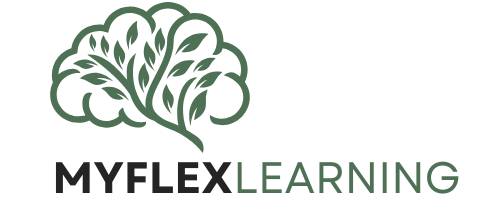In a world where pajamas are the new business casual, online learning has become the go-to solution for knowledge seekers. With a treasure trove of resources at their fingertips, anyone can transform from couch potato to academic powerhouse faster than you can say “Zoom fatigue.” Whether it’s mastering quantum physics or perfecting the art of sourdough baking, the internet’s got it covered.
what are some of the resources available for online learning?
A variety of online learning resources exist for individuals pursuing knowledge. Websites provide structured courses on diverse subjects like mathematics and art history. Platforms such as Coursera and edX offer classes in partnership with universities. These courses often include certificates that enhance resumes.
Video tutorials create engaging learning experiences. YouTube features channels devoted to topics like programming and cooking. Such resources cater to different learning styles, encouraging visual engagement.
Podcasts serve as on-the-go learning tools. Numerous platforms provide podcasts covering a plethora of subjects, making it easy to learn during commutes. Listeners can absorb information passively while multitasking.
Books and eBooks supply in-depth knowledge. Websites like Project Gutenberg offer access to thousands of free eBooks. Individuals seeking comprehensive resources can leverage these to supplement their learning.
Forums and discussion groups create collaborative environments. Websites like Reddit and Stack Exchange allow learners to ask questions and exchange ideas. This community aspect fosters an interactive approach to understanding complex topics.
Educational apps contribute to personalized learning experiences. Apps like Duolingo and Khan Academy use gamification to make learning enjoyable. Learners can progress at their own pace, ensuring a tailored experience.
Webinars and live workshops enable real-time interaction with instructors. These formats allow participants to ask questions and engage in discussions. Platforms such as Zoom and GoToWebinar host a variety of events.
Together, these resources create a robust ecosystem for online learning. Individuals can choose according to their preferences and goals, making knowledge acquisition accessible and flexible.
Types of Online Learning Resources

Online learning offers diverse resources catering to various preferences and needs. These materials enhance the educational experience and promote knowledge acquisition.
E-Learning Platforms
E-learning platforms provide structured courses in a variety of subjects. Sites like Coursera and edX host classes from reputable universities, granting certificates upon completion. These certificates often boost resumes and professional appeal. Learners can choose from specializations spanning numerous fields, including data science, arts, and business. Features like community forums and quizzes encourage engagement and reinforce understanding.
Educational Websites
Educational websites serve as treasure troves of information and tutorials. Websites such as Khan Academy and BBC Bitesize present free resources tailored to different age groups and learning levels. Learners can explore subjects ranging from mathematics to science through interactive content. Many of these sites emphasize self-paced learning, allowing individuals to study at their convenience. Visual aids and practice exercises enhance retention and comprehension.
Mobile Learning Apps
Mobile learning apps transform smartphones and tablets into learning tools. Apps like Duolingo and Quizlet promote language acquisition and study skills through gamification. These platforms enable users to learn on the go, integrating education into daily routines. Features such as progress tracking and personalized quizzes adapt to users’ needs, ensuring a custom learning journey. Accessing knowledge becomes seamless and engaging, fitting into modern lifestyles.
Benefits of Using Online Learning Resources
Online learning enhances educational experiences through various benefits. Flexibility and convenience rank high among these advantages.
Flexibility and Convenience
Learners tailor their study schedules to fit personal commitments. Online resources allow students to access materials at any time and from any location. This accessibility suits busy lifestyles, enabling education to integrate seamlessly into daily routines. Traditional classroom settings often inflexible in timing don’t cater to diverse needs. Online platforms break these barriers, promoting self-paced learning. Furthermore, learners can review materials as often as needed to reinforce understanding.
Access to Diverse Content
Students gain access to a vast range of subjects and formats. Online platforms host courses from quantum physics to creative writing, appealing to various interests. Video tutorials cater to visual learners, while podcasts serve auditory preferences. Engaging with different media enriches the learning experience. During research, individuals can explore materials from globally recognized institutions and expert educators. This variety not only maintains engagement but also fosters a deeper understanding of complex topics. Online learning resources create an environment where learners can thrive, no matter their chosen path.
Challenges of Online Learning Resources
Online learning presents unique challenges that can hinder the educational experience. Understanding these obstacles helps learners navigate the digital landscape effectively.
Information Overload
Information overload occurs when learners encounter excessive content without a clear way to filter it. Learners may feel overwhelmed by vast amounts of material available across various platforms. Discerning relevant and high-quality information becomes difficult amid the noise. Users might struggle to prioritize topics and resources, leading to confusion and frustration. Effective curation of content can mitigate this issue by presenting essential information logically. Establishing a focused learning pathway allows individuals to absorb knowledge without feeling inundated.
Quality Assurance
Quality assurance represents a significant challenge in the online learning environment. Not all online resources maintain rigorous academic standards, making it hard to distinguish credible content from the unreliable. Users may encounter outdated information or materials lacking proper research backing. Platforms like Coursera and edX offer accredited courses, yet lesser-known resources might not meet similar standards. Verification of sources and reviews from trusted users enhance confidence in the selected materials. Implementing a review system for resources can empower learners to make informed choices.
personal and professional growth
The landscape of online learning is rich with resources that cater to a variety of needs and preferences. With platforms offering structured courses and interactive materials learners can easily find the right fit for their educational journey. The flexibility of accessing content anytime and anywhere empowers individuals to learn at their own pace.
While challenges like information overload and varying quality exist it’s crucial for learners to curate their resources wisely. By exploring diverse formats and engaging with reputable sources they can enhance their knowledge effectively. Embracing these online tools opens the door to endless opportunities for personal and professional growth.

